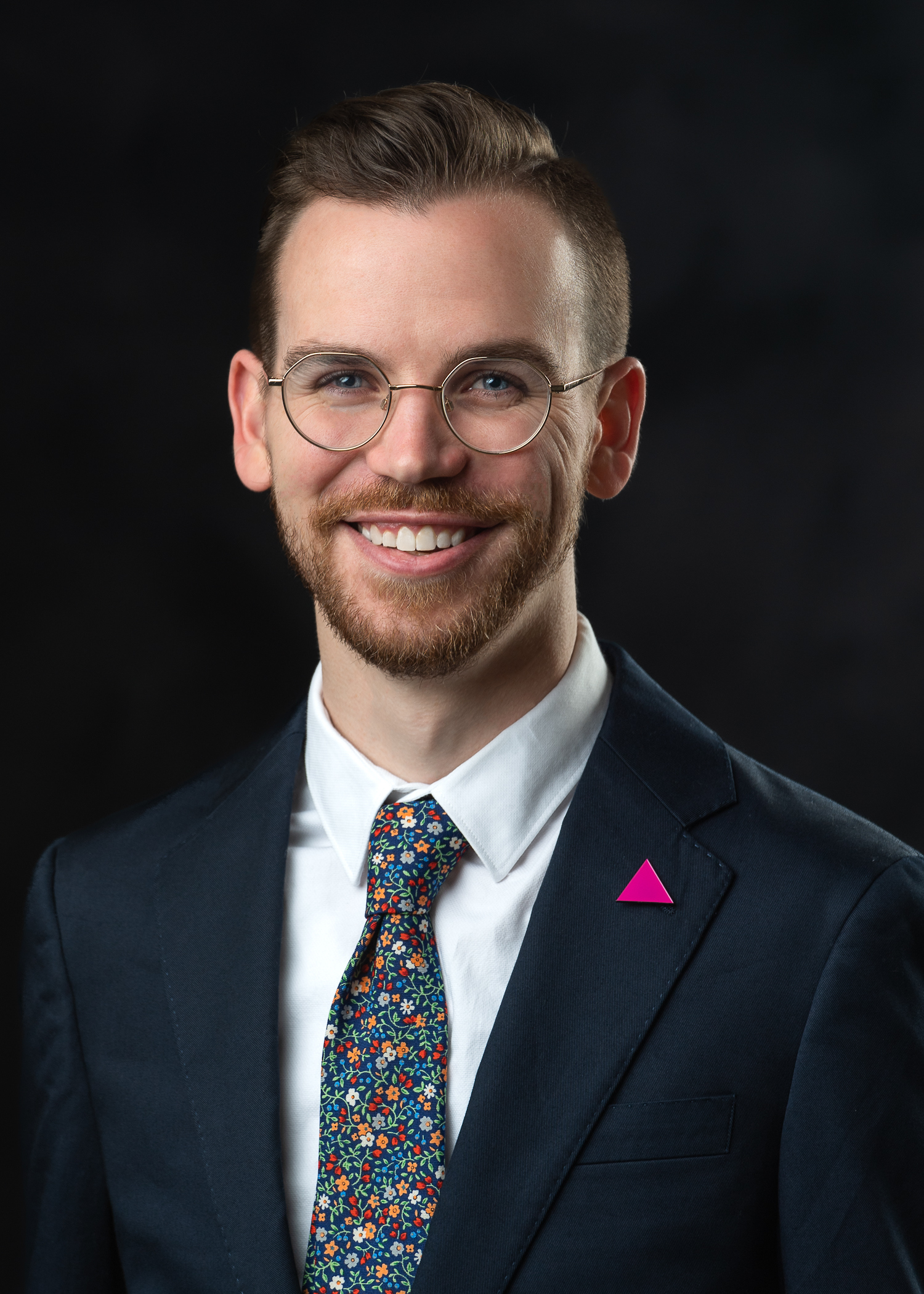 Gabe Miller, Ph.D.
Gabe Miller, Ph.D.
Photography: Robby LozanoGabe Miller, Ph.D., assistant professor at the University of Alabama at Birmingham College of Arts and Sciences’ Department of Sociology, has been named a member of the 2023-2024 Scholar Strategy Network’s Health Equity Scholars Program in recognition of his research into health equity.
The 2023-24 HESP cohort consists of early-career scholars like Miller to make dissemination of their research findings among peers, senior scholars, policymakers and practitioners more accessible and boost community engagement to induce change.
“Selection as a HESP scholar motivates me to continue researching sexual, gender, and racial/ethnic health inequities, as our findings about social determinants of health may inform evidence-based policy decisions and interventions,” Miller said. “I am grateful for being recognized by the Scholar Strategy Network and the Robert Wood Johnson Foundation as it validates my work as vital for building health equity.”
This year’s HESP cohort includes 18 scholars nationwide researching social determinants of health. As a cohort member, Miller will participate in an in-person meeting early in 2024 and ongoing virtual workshops and training sessions focused on the ongoing development of the tools and skills needed to improve health equity. The goal is to empower early-career scientists to communicate research to policy stakeholders, enhance personal development and foster relationships.
“I’m especially looking forward to the networking and community-building with the other 17 scholars; I am excited to learn from these other phenomenal researchers,” Miller said. “Several cohort members are working on LGBT health equity or racial/ethnic health equity, so I expect my participation will result in a stronger partnership with the Scholar Strategy Network and the organizations they work with, as well.”
According to Miller, his work will involve leveraging HESP resources to better promote his ongoing work focused on health equity. “Some of that work, funded by the Robert Wood Johnson Foundation investigates the impact of state-level LGBT-related policies on the health of LGB (lesbian, gay and bisexual) individuals, as well as heterosexual individuals,” he said.